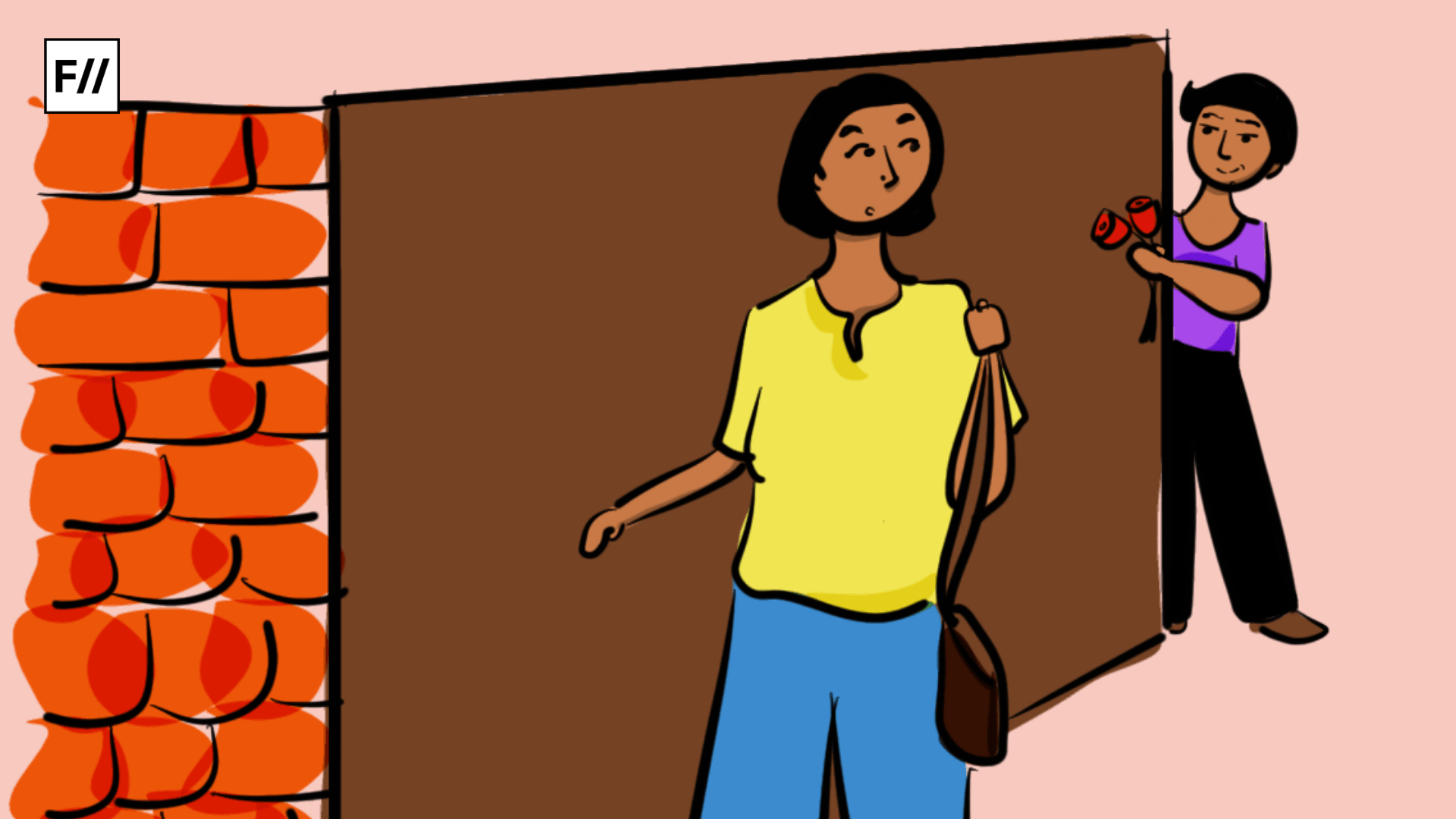Trigger warning: Mention of gender-based violence, acid attacks, and intimate partner violence
My mother once told me that not being so beautiful was the biggest blessing I had, growing up. The rationale was that this way, I did not receive unwanted attention. Her opinion was founded on the fear of acid attacks against women that were becoming rampant, back in the day. Rejecting romantic advances meant signing a death warrant or something equally destabilising, for women.
The cis-het romantic equation today is characterised by men’s inability to accept rejection and by extension, punishing women for simply saying ‘no‘. From fatal acid attacks that leave scars physically and mentally, to revenge porn and similar crimes, to murders in broad daylight, harming a woman who rejects a man’s romantic advances has become the norm today.
Despite being one of the most discussed emotions worldwide, I feel that we as a society, have not understood what love is. Or, we have consciously decided to gender love as well.

On the one hand there is an over-romanticised view of love as tolerant of everything, bordering on subservience, and on the other hand, we paint love as enmeshed with violence with the all is fair in love and war narrative. With the increasing number of crimes that are based on love turning sour, there needs to be a redefinition of love itself as an exchange that is based on respect and consent.
The image of a woman as something to be possessed and to be destroyed if she does not become one’s possession, shows the extremity of the control, dehumanisation and objectification that women are subjected to. This tendency is exemplified by popular media and the ‘item dance culture’, that market women and their bodies like commodities. Adding on to that is the glorification of the stereotypical, crazy lover in movies, who threatens to cut his vein if the girl does not say she likes him (case in point, Raanjhanaa) – this picture is not far away from the jilted lover who uses brute force on a woman for rejecting his advances
The validation of such ‘crimes of passion’ is often based on the understanding that it is quite normal for men to be aggressive in their pursuit of women, especially considering that we live in a patriarchal society that views aggression as a desirable quality in men. Once violence and aggression get normalised as part of our mating rituals, they become easily cemented as acceptable behavior while dealing with romantic rejection as well.
This gendered idea of love is aided by the regressive understanding of a woman’s agency. In addition to undermining a woman’s agency, the nature of these crimes has a lot to do with what attributes are seen as valuable in a woman – physical appearance and ‘virtue’. This is exactly why acid attacks have been a favourite of such perpetrators – it destroys whatever physical attributes attract men and take away the most valued social features of a woman’s personality.
In doing so, not only is the man establishing the extreme possessive mentality that underlies the idea of ‘If I cannot have her, nobody else can’, but is also placing the woman’s worth solely on how she looks. Another attempt to ruin the worth of women is shown through cyber crimes – by releasing pictures of private nature. Here, the woman is paraded to the world as ‘tainted’ or devoid of ‘virtue’ so that no man would want her. Perhaps, it is this sinister intent that ultimately shows what such men felt for these women in the first place – obsession, not love.
Also read: Youth Stalks And Murders Female Classmate In Kerala: Do Women Owe Us Their Life Choices?

The image of a woman as something to be possessed and to be destroyed if she does not become one’s possession shows the extremity of the control, dehumanisation, and objectification that women are subjected to. This tendency is exemplified by popular media and the ‘item dance culture’, that markets women and their bodies like commodities.
Adding on to that is the glorification of the stereotypical, crazy lover in movies, who threatens to cut his vein if the girl does not say she likes him (case in point, Raanjhanaa) – this picture is not far away from the ‘jilted lover‘ who uses brute force on a woman for rejecting his advances.
As is normal with umpteen other things in a patriarchal society, the onus of defending themselves against these attacks falls on the women. With attention skewed towards teaching women to look less appealing and not sharing their pictures online, the society posits women’s behaviour as the cause for the violent reactions they face
Many psychologists situate the cause of this in indulgent parenting styles that do not equip children with the ability to handle rejection with objectivity. By focusing on the success and gratification of wants disproportionately, rejection is not often discussed in households as a natural occurrence, especially in terms of personal relationships.
With a culture that views divorces as ‘failed marriages’ and not emotionally better places to be, rejection, or even the break up of romantic relationships are seen as equivalent to personal failures. Combined with the hypermasculine narrative that pushes men to seek revenge for such failures, rejecting romantic advances can be fatal for women.
The use of violence to establish control over women and their right of choice is built into our institutionalised nature of domestic relationships as well. We adhere to gender power structures and give free rein to actions that tend to reinforce gender power and ownership in relationships. India’s stand on marital rape is an example of this. When a woman is in a relationship with a man, her right to consent is scrutinised to a point where it is demanded of her that she remains subservient to the man’s interests.

As is normal with umpteen other things in a patriarchal society, the onus of defending themselves against these attacks falls on the women. With attention skewed towards teaching women to look less appealing and not sharing their pictures online, the society posits women’s behaviour as the cause for the violent reactions they face.
In newsroom discussions following such incidents, attention is paid to the woman’s relationship with the perpetrator, and whether she had done anything that ‘led him on’. This hyperfocus on women disregards the importance of teaching men to be respectful toward women despite disagreements, and that rejection, especially in romantic equations, is natural. An assent to a relationship does not translate to the ownership of a woman. Most importantly, we must reiterate the fact that ‘No‘, in itself, is a full sentence.
With organisations such as the Meer Foundation and Sheroes doing important groundwork to support the survivors of acid attacks, social and financial aid is being ensured to a limited extendextent to women who go through such violence. But they cannot entirely live their lives without heavy scarring and trauma.
The lives that were taken leave behind incomplete dreams and broken families. It is high time that we shift the narrative to the perpetrators, and investigate gender power structures within relationships. This kind of unchecked sense of ownership only accelerates crime against women and other marginalised genders, and we must intervene socially, politically and legally to address it.
Also read: A Stalker Is Not Just An Individual But The Society Itself: How Well Do We Address Stalking?
Featured Illustration: Ritika Banerjee for Feminism In India
About the author(s)
Stephy is a masters student in Jamia. Her interests revolve around issues of conflict and peace, gender and mental health. She hopes to shed her inherent biases daily and become a better ally each day





Excellent article.
Mostly it is uneducated, illiterate, lower class bastard men who cannot handle rejection and then they commit these crimes against women. These men are scum of the earth.